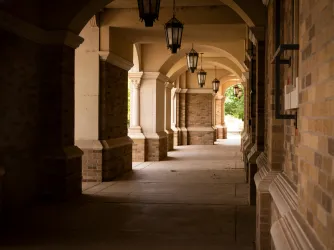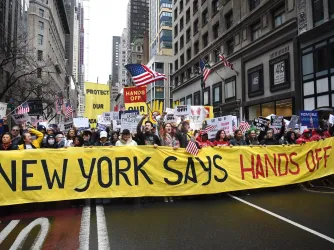Table of Contents
REPORT: Faculty members more likely to self-censor today than during McCarthy era

- 40% of liberal faculty are afraid of losing their jobs or reputations due to their speech
- Two in five faculty self-censor more now than in 2020
- Only 3% of older faculty report some level of acceptance of students using violence to stop a campus speech. That number jumps to 21% among the youngest faculty members
- Female faculty are more likely to support speech restrictions, campus investigations, deplatforming
PHILADELPHIA, Feb. 28, 2023 — At the end of the Second Red Scare in 1955, 9% of social scientists said they toned down their writing for fear of causing controversy. Today, one in four faculty say they’re very or extremely likely to self-censor in academic publications, and over one in three do so during interviews or lectures.
A new report from the Foundation for Individual Rights and Expression suggests that as younger faculty replace older faculty and more women join their ranks, the conditions for campus free expression may continue to deteriorate.
The survey sponsored by FIRE and administered by Social Science Research Services asked almost 1,500 university faculty members about their views on campus civil liberties. The data show that faculty members today are more fearful than during the Second Red Scare, with 72% of conservative faculty, 56% of moderate faculty, and even 40% of liberal faculty afraid of losing their jobs or reputations due to their speech. Untenured faculty are more afraid than tenured faculty, with 42% of untenured faculty censoring themselves, versus 31% of tenured faculty.
“We’re finally seeing the extent to which faculty have lost their peace of mind,” said FIRE Research Fellow Nathan Honeycutt. “When professors across the political spectrum become terrified of losing their jobs for exercising their rights, true academic inquiry and diversity of thought become nearly impossible.”
Even more concerning are findings that suggest that faculty are not just afraid of overzealous administrators, but also of students and each other. One-third of faculty said they often feel that they cannot express their opinion on a subject because of how students, colleagues, or the administration would respond. And faculty are more likely to feel pressure to avoid researching controversial topics from their fellow faculty members than from the administration.
Perhaps their fears are warranted. Support for “hard authoritarianism,” or the outright punishment of someone’s protected expression, remains low, but support for “soft authoritarianism,” or milder sanctions like not being hired or promoted, is concerning:
- Up to 36% of faculty would endorse their college’s administration launching an investigation into other faculty members for their controversial expression.
- Half of faculty think that diversity, equity, and inclusion statements are a justifiable requirement for a university job.
- Faculty are unconcerned about political homogeneity in academia, with 57% of liberal faculty saying that improving political diversity is less important than advancing race and gender diversity.
Young faculty members and female faculty members are the least likely to tolerate heterodox speech: One in five faculty members under the age of 35 report some level of acceptance of students using violence to stop a controversial campus speaker, and 19% of female faculty believe that it’s acceptable to limit potentially “hateful” speech even when that speech isn’t intended to be hateful.
“Faculty members complain that they can’t speak freely, but they’re also turning on each other,” said FIRE’s Director of Polling and Analytics Sean Stevens. “They can’t have it both ways. If faculty members want to feel safe to speak freely, they have to stop supporting the censorship of others.”
The Foundation for Individual Rights and Expression (FIRE) is a nonpartisan, nonprofit organization dedicated to defending and sustaining the individual rights of all Americans to free speech and free thought — the most essential qualities of liberty. FIRE recognizes that colleges and universities play a vital role in preserving free thought within a free society. To this end, we place a special emphasis on defending the individual rights of students and faculty members on our nation’s campuses, including freedom of speech, freedom of association, due process, legal equality, religious liberty, and sanctity of conscience.
CONTACT
Katie Kortepeter, Communications Campaign Manager, FIRE: 215-717-3473; media@thefire.org
Recent Articles
Get the latest free speech news and analysis from FIRE.

He refused to censor his syllabus — so Texas Tech cancelled his class

Fandom’s lighthouse in a sea of censorship

FIRE statement on Stephen Colbert’s James Talarico interview and continued FCC pressure


